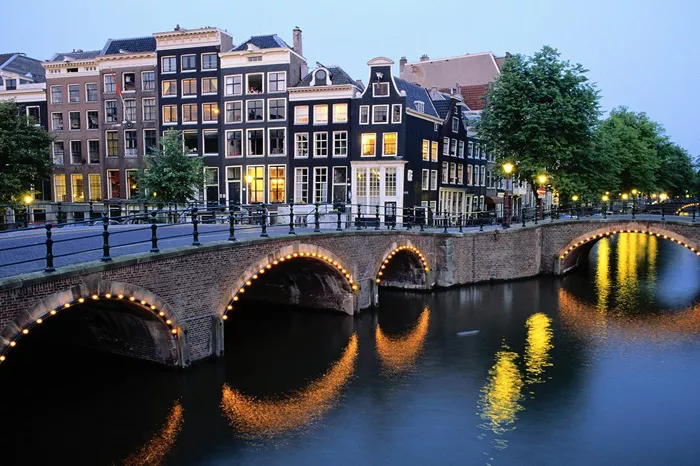Traveling to the Netherlands with a UK travel document involves several considerations, including visa requirements, the purpose of your visit, and potential health and safety protocols. Below is a comprehensive guide for UK travel document holders planning a visit to the Netherlands, including the application process for a visa if required.
Visa-Free Travel for British Passport Holders
For UK citizens holding a British passport, travel to the Netherlands is straightforward. UK passport holders are not required to obtain a visa for short stays in the Netherlands, as long as the visit does not exceed 90 days within a 180-day period. This exemption applies to travel for various purposes, such as tourism, visiting family or friends, business meetings, or short-term studies.
Purpose of Visit
Tourism: Explore the famous canals of Amsterdam, visit museums, or enjoy the Netherlands’ cultural heritage.
Visiting Family/Friends: Stay with family members or friends without the need for a visa.
Business Meetings: Attend short-term business engagements, such as meetings or conferences.
Short-term Studies: Participate in a course or seminar lasting less than 90 days.
Visa Requirements for Other Travel Documents
However, if you do not hold a British passport and are traveling with a different UK travel document, such as a UK Emergency Travel Document (ETD) or a UK Travel Document for Refugees, you may need to apply for a Schengen visa to enter the Netherlands.
Application Process for a Schengen Visa
If you require a Schengen visa, you must apply through the Dutch Embassy or Consulate. Here is a breakdown of the application process:
Check Eligibility
Ensure you are eligible for a short-stay Schengen visa, which is valid for stays of up to 90 days in a 180-day period. The Netherlands is part of the Schengen Area, so the visa grants access to all member countries.
Prepare Required Documents
A completed Schengen visa application form.
A valid passport or travel document (with at least two blank pages and validity for at least three months beyond the intended stay).
Recent passport-sized photographs.
Proof of travel arrangements (e.g., flight bookings).
Proof of accommodation (hotel reservation, invitation letter from a host, etc.).
Travel insurance covering the entire Schengen Area for medical expenses.
Proof of sufficient financial means to support your stay.
A cover letter stating the purpose of your visit.
Schedule an Appointment
Book an appointment with the Dutch Embassy or Consulate. In some cases, you may need to apply via an external service provider or visa application center.
Attend the Visa Interview
Submit your application and attend an interview, where biometrics (fingerprints) may be taken.
Pay Visa Fees
Visa fees generally range from €60 to €80, depending on the type of visa and your nationality.
Wait for Processing
Processing time can vary, but it usually takes 15 calendar days. It is recommended to apply well in advance of your planned travel date.
Health and Safety Protocols
As of the latest updates, travelers to the Netherlands should be aware of certain health and safety protocols, which may change due to ongoing global health concerns.
COVID-19 Requirements
Depending on the situation at the time of your travel, you may need to provide proof of COVID-19 vaccination, a negative test result, or undergo quarantine upon arrival. Check the latest travel advisories before departure.
Vaccinations and Health Certificates
Certain vaccines may be recommended, especially for travelers visiting from countries with specific health risks. Be sure to check if any health certificates or vaccination records are required.
Customs and Baggage Guidelines
When traveling to the Netherlands, travelers must comply with customs regulations regarding duty-free goods, baggage allowances, and prohibited items.
Duty-Free Allowances
Travelers can bring in goods without paying duty up to certain limits. These include alcohol, tobacco, and perfumes. Be aware of the specific allowances for each category, which can vary based on whether the traveler is entering from inside or outside the EU.
Prohibited Items
Certain items are strictly prohibited from entry into the Netherlands, including illegal drugs, weapons, and counterfeit goods. Travelers should ensure they are not carrying any banned items, which can lead to fines or detention.
Smooth Customs Clearance
To expedite customs clearance, make sure you have all necessary documentation in order, and declare any items above the duty-free limit.
Conclusion
In summary, British passport holders can travel to the Netherlands without a visa for short stays. However, UK travel document holders, such as those using a UK Emergency Travel Document, may need to apply for a Schengen visa. Ensure that you understand the specific requirements based on your travel document, and keep abreast of any health and safety protocols in place at the time of your visit. Safe travels!

